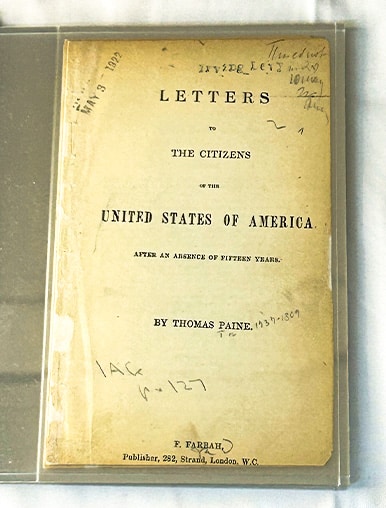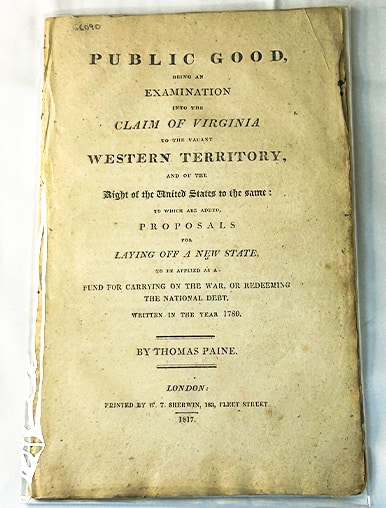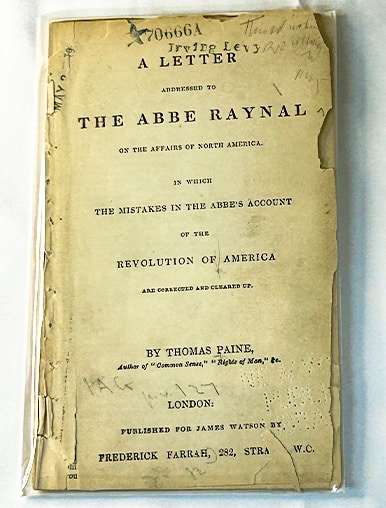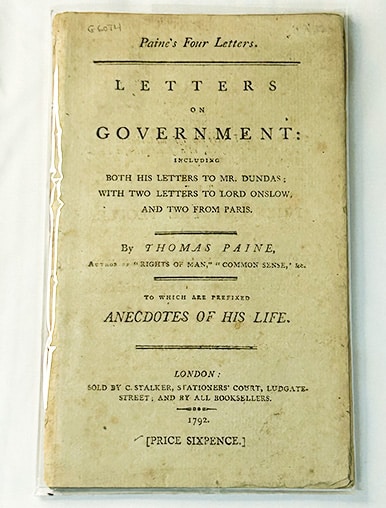REMNANT TRUST COLLECTION
Common Sense / Plain Truth
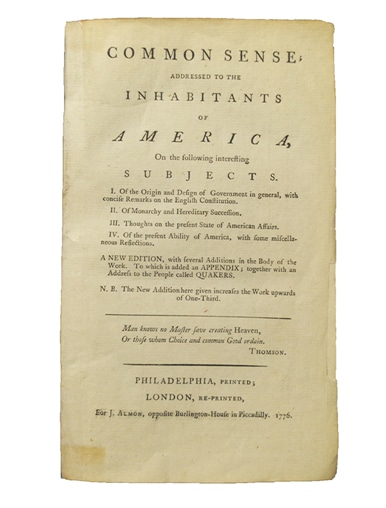
Category: Liberty & Dignity/Politics/Religion
By Thomas Paine
Published in 1776
Reference #0269
[A Collection of Two Works in One Volume]
a. Common Sense; Addressed to the Inhabitants of America, On the Following Subjects. I. Of the origin and design of Government in general, with concise remarks on the English Constitution. II. Of Monarchy and Hereditary Succession. III. Thoughts on the present state of American Affairs. IV. Of the present ability of America, with some miscellaneous Reflections.
b. Plain Truth: Address to the Inhabitants of America. Containing Remarks on the Late Pamphlet, Intitled Common Sense: Wherein are shewn, that the Scheme of Independence is ruinous, delusive, and impracticable; that were the Author’s Asseverations, respecting the Power of America, as real as nugatory, Reconciliation on liberal Principles with Great Britain would be exalted Policy; and that, circumstanced as we are, permanent Liberty and true Happiness can only be obtained by Reconciliation with that Kingdom.
First London Edition, with rare general half-title of Thomas Paine “Common Sense.” It was published anonymously on January 10, 1776. In “Common Sense,” Paine made a persuasive case to the Colonists for American independence. He linked independence with the prevalent religious views of the Colonies, creating a uniquely American political identity. It was written like a sermon using clear and persuasive prose so all could read and understand its purpose. After publication, “Common Sense” became the most widely circulated document at the time, going through twenty-five editions in its first year; one in six households owned a copy. This volume also contains the first British edition of “Plain Truth: Address to the Inhabitants of America,” a passionate response to Paine’s “Common Sense.” It was written by loyalist officer and pamphleteer James Chalmers under the pen name “Candidus.” The work was first published in 1776 in Philadelphia by R. Bell. This edition was re-printed for J. Almon in London in 1776. Written with vigorous zeal, the essay was in opposition to American independence. It argued why the colonies should remain part of Britain and urged for reconciliation between the two. While “Plain Truth” is Chalmers’ best known work, he spent many of his final years writing pamphlets against the works of Paine.

